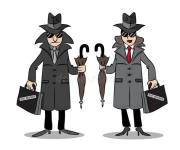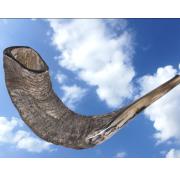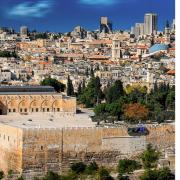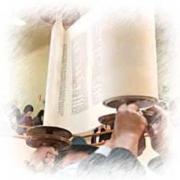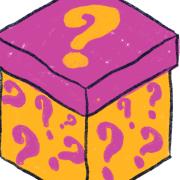The 9th of Av is the most horrible and darkest day in Jewish history. Thousands of Roman troops came to the walls of Jerusalem, and on the 9th of Av, Jerusalem was on fire. Why? What did the Jews in the community do, so this happened to the nation?
The Talmud, Gittin 55–56, says that the Second Bet Hamikdash was destroyed due to an argument between two people—Kamtza & Bar Kamtza. The story goes like this: a man threw a party and asked his servant to invite his friend Kamtza. The servant went, but instead of going to Kamtza, by mistake, he invited his enemy, Bar Kamtza. Already at the party, as the host went from table to table, he noticed his enemy sitting and having a good time with the rest of the guests. The host came over and asked him, "What are you doing here?" Bar Kamtza politely answered that his servant had invited him. That's when the host realized that his servant had made a mistake and called the wrong guy. Furiously, he asked the guy to leave the party, but Bar Kamtza offered to pay for his meal and asked him not to make a scene and not to humiliate him in front of everyone. But the host refused again and asked him to leave. Bar Kamtza offered to pay half the cost of the party, then the full cost, but the host refused and threw him out.
The Talmud says that people present at the party, especially the Torah sages, sat quietly and didn't get involved. The Talmud rebukes this behavior and says at the end, that this incident was the reason for the destruction of the Second Temple.
Any argument is accompanied by gossip and rumors.
The same thing happened many times in our history, and every time, Hashem's reaction was very severe.
- Yosef was saying about his brothers to his father, and for that they hated him. Because of this, the brothers sold Yosef, and later the whole family emigrated to Egypt (Bereshit Chapter 37, and Bereshit Rabah 84:7)
- Moshe was puzzled as to why the Jewish people had such a hard life being slaves in Egypt. But when he found out that amongst them were people who spread rumors, he understood why this was their fate. (Shemot and Rashi 2:14)
- When the spies came back and slandered Eretz Yisrael, those who believed paid with their lives - all the adults died and were buried in the desert. (Parashat Shelach)
- Doeg, the Head of Sanhedrin, was solely responsible for the killing of the City of Kohanim. (Shmuel 22:9)
- The armies of Shaul HaMelech were losing battles with the Philistines because people were spreading rumors about (already anointed and future) King David. (Midrash Shocher Tov 7:8)
There are lots of other stories of people being slandered, and all of them have one thing in common: they break one commandment —the Commandment of Lashon Hara, which means saying something bad, even though it may be true. (Shulchan Aruch, Orach Hachaim 156:10)
- It is forbidden to repeat something about someone, even though this may not be negative; this is called Rechilut. (Vayikra 19:16, Mishneh Torah, Chilchot Deot Chapter 7)
- It is forbidden to listen when someone says something negative about someone. The person should admonish the speaker, and if this is not possible, he needs to remove himself from his presence. (Chafetz Chaim 6:2, based on Talmud Ketubot 5A and many other sources)
- And even if the person heard something negative about someone, he is not allowed to believe it; on the contrary, he needs to give him the benefit of the doubt and justify his actions, and always judge a person for good. (Talmud Pesachim 118A, also in the commentaries of Rashbam in Perek HaMekabel)
In the Book of Shemot, Parashat Vayera 18:1 - 18:33, it talks about Avraham Avinu: right after he made a brit, the three angels came to him. One of the angels said that he came to destroy the cities of Sodom and Gomorrah. When Avraham Avinu heard that, he began praying to Hashem and asked Him whether fifty righteous people were living there, so that He would not destroy the cities for their sake. Hashem told him, There are not. Then he asked him to save the cities for forty-five, and again He said they are not there. Then he asked for thirty, and twenty, and still he got a negative answer. Then, once again, he approached Hashem in prayer and asked to save the cities for ten righteous people, but Hashem said that even ten righteous people don't exist in those cities. Rashi says that the lawyer —Avraham Avinu — fell silent, and Hashem left his presence, since there were not even ten tzaddikim to save the cities in their merit.
In the story of Kamtza and Bar Kamtza, there were no ten members of the community who thought well of Bar Kamtza, and who were willing to get up and publicly defend him and stop the host of the party. People have been gossiping about Bar Kamtza, and others have believed it and spread it further. This was an epidemic in a society that had laws against such behavior. People were so sure that Bar Kamtza was the guilty party that they took on the roles of observers at the party. They were judging Bar Kamtza unfavorably because they already had an opinion of him, influenced by all the gossip and rumors circulating before this incident at the party. And with all of this, laws of lashon hara and other laws were broken, which led to the destruction of the Second Temple, loss of millions of lives, and an exile till our time.
We are in exile, which means this disease is still plaguing us. And suppose there's a person amongst us, about whom everyone is talking, and talking very badly, and people believe and spread rumors. Based on these rumors, he is being judged and treated differently, while being subjected to more and more new labels and accusations. In that case, this is called Lashon Hara—talking badly, spreading rumors, and gossip— which Torah calls in two words: sinat chinam or baseless hatred.
And if in that place you still have 50, 45, 30, 20, or 10 righteous people, who do not believe all that gossip, contrary to public pressure, then there's still hope that Hashem's fury can be turned away. We should always try to prevent the community from speaking and spreading rumors, using our influence and communal pressure, and squash this type of behavior right from the start.
And if not? And the rumors went far—then there's a job to do: he should be cleaning up. When he sees those who heard and those who might have heard, he needs to convince them that this is not true and ask Hashem for mercy. (Sefer Chafetz Chaim). Otherwise, as was said in the previous articles, our Small Batey Mikdashim—homes, synagogues, and social places — are at stake.
Our Sages taught, "Any generation in which the Temple is not built, it is as if it had been destroyed in their times" (Talmud Yerushalmi, Yoma 1A). Because that generation continues in the footsteps of the one who destroyed the Temple, they are not trying to fix the mistakes of the past generations, but continue doing the same destructive sins in the eyes of Hashem and the nation.
Our goal is to build strong families and communities which have to live by Torah laws. Based on our life experience, we need to help people by giving them advice, guiding, and encouraging all those who fell in life - and to do this not because we owe them or they owe us, but just like that, as the Gemara says: Loving and helping another Jew without any reason, as Achavat Chinam or Baseless Love.
This action alone will grow, multiply, and strengthen the Jewish Nation and our communities while doing an unforgettable act of bringing peace between people and families, for which Hashem Himself will repay. This action will be responsible for many who have left the Judaism, returning to Hashem and His Torah and mitzvot. And based on everything said above, we and our families will merit seeing Mashiach while doing our part to hasten his arrival and free us from this prolonged exile.
Shmuel Katanov
08/13/2025
Read more





